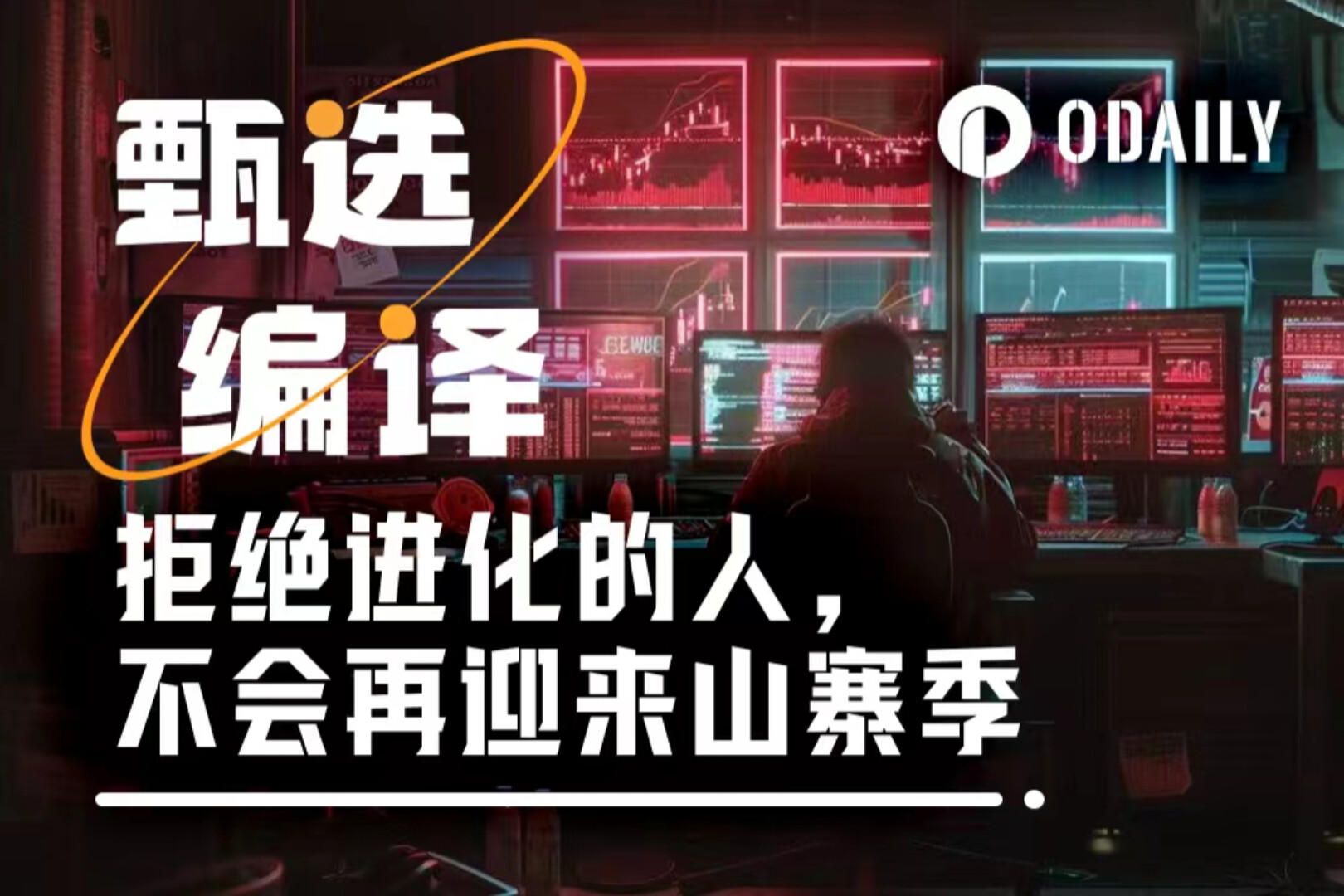Editor's Note: This article comes fromCarbon chain value (ID: cc-value)Editor's Note: This article comes from
Carbon chain value (ID: cc-value)
, Author: Wang Zelong, Editor: Tang Han, reproduced by Odaily with authorization.
According to public information, the U.S. federal government is the company’s primary government client. The relationship between Chainalysis and the U.S. government originated in 2014 when it assisted the world’s largest exchange Mt Gox in the investigation and identified 65,000 missing bitcoins. currency flow.
The above content is part of the evaluation of Chainalysis employees (who have left or are still working) on the company. This anonymous person suddenly opened an AMA on the forensics capabilities of Chainalysis blockchain privately on the r/Bitcoin channel on Reddit, which once again made the encryption community Terrified by the potential disruptive power of such blockchain analysis companies to the crypto world.
In fact, no matter how much PR Chainalysis, a leading company in the field of blockchain analysis, can make users trust in it—after all, its revenue structure and main service customers are highly "institutionalized", and its The controversies that have appeared several times on the body have made users doubtful.
SVIP of "Government Banquet"

Founded in 2014, this blockchain analysis company has three main types of customers: governments, financial institutions, and cryptocurrency exchanges. It provides bitcoin transaction analysis software to help them comply with compliance requirements, assess risks, and identify illegal activities. and other services, the current valuation has exceeded 1 billion U.S. dollars, and the revenue in 2018 is about 8 million U.S. dollars.
image description
Since its inception, Chainalysis has completed three rounds of financing, with a total of $53.6 million in funding | Source: Crunchbase
According to Forbes, the company's co-founder and CSO Jonathan Levin said that half of the company's revenue comes from cooperation with governments and regulators in different countries.
According to public information, the U.S. federal government is the company’s primary government customer. The relationship between Chainalysis and the U.S. government originated in 2014 when it assisted the world’s largest exchange Mt Gox in the investigation and identified 65,000 missing bitcoins. currency flow.
By 2017, Chainalysis already had a relatively important position in the hearts of the government: Jonathan Levin represented Chainalysis and Coin Center (a non-profit blockchain association supported by industry leading institutions such as A16Z, Circle, Digital Currency Group, Polychain Capital, etc., aimed at In promoting relevant research and policy promotion) Jerry Brito, executive director, Scott Dueweke, chairman of The Identity and Payment Association (The Identity and Payment Association), Stanford University Law School lecturer, former federal prosecutor Kathryn Haun (later became a partner of A16Z), Representatives of institutions such as Luke Wilson, Vice Chairman of Business Development at Elliptic (which is also an important company in the field of blockchain analysis), were invited to participate in the "Virtual Currency: Financial Innovation" organized by the Financial Servie Committee of the U.S. House of Representatives. and National Security Significance".

Due to the good performance in past cooperation, the increasing popularity of the company, the combination of ICO in 2017, the chaos in the cryptocurrency market, and the rampant ransomware similar to WannaCry, the purchase of Chainalysis services by the federal government system has increased significantly, and has been on the rise since then situation.
U.S. government agencies’ service purchases from blockchain analysis companies are increasing year by year | Source: Diar, Carbon Chain Value

So far, several powerful and powerful departments in the federal government have purchased Chainalysis services. According to the public information of the Federal Procurement Data System (FPDS), as of August 24, the federal government, including the US Internal Revenue Service, Immigration and Customs Enforcement, the Drug Enforcement Administration, and the US Federal Bureau of Investigation, etc. Eight departments signed a total of 71 contracts with Chainalysis, with a total amount of $9,013,463.05.
image description
As of 24th, 2019, statistics on Chainalysis services purchased by several departments of the U.S. federal government | Source: Federal Procurement Data System (FPDS), Carbon Chain Value Production
From the above table we can see several interesting phenomena:
1) The three units with the largest single amount of expenditure are: the US Internal Revenue Service, FBI, and US Immigration and Customs Enforcement. These three departments are obviously powerful departments. The largest of several sectors in the table;
2) In the column of the maximum expenditure time of a single amount, 5 departments occurred in 2019, and 3 departments occurred in 2018, accounting for more than 60% both in terms of number and amount. To a certain extent, it shows that the purchase amount of blockchain analysis/forensics services within the federal system is indeed increasing year by year, and further, this value will continue to rise for a period of time;
According to the Chainalysis employee who started the AMA privately, most other federal law enforcement agencies such as Homeland Security Investigations, the US Administration of Alcohol, Tobacco, and Firearms, the Secret Service, and the CIA are also users of the software. But it is not clear whether the organization identified by the anonymous person has a service purchase contract with Chainalysis.

In addition to the U.S. government, Europol, the Dutch police department (Chainalysis once assisted the Dutch police in banning Hansa, one of the world’s largest darknet markets), the United Nations Office on Drugs and Crime and other government departments, Binance, Coinbase and financial institutions such as Barclays Bank and Bank of Montreal have cooperated or have cooperated with Chainalysis to purchase its blockchain analysis services or compliance solutions.
image description
It should be pointed out that since Chainalysis generally keeps silent about the names of its customers and the form of cooperation with customers, and the information on the number and amount of purchase contracts for Chainalysis services in public information is not complete, therefore, the person who invited Chainalysis to be a guest The number of institutions, especially government agencies, obviously has more room for imagination.
While gaining the favor of institutions and organizations represented by the government by strengthening its own business capabilities, Chainalysis is also vigorously building a team that is more suitable for its business characteristics with strong compliance, and has introduced many "in-system" or close to the system person.
secondary title
"Genzhengmiaohong" team
Chief Technical Advisor Michael Mosier, who joined in June, has served in various government positions for more than a decade, including the Department of Justice (DOJ), the Treasury Department's Office of Foreign Assets Control (OFAC), the White House National Security Council, and the U.S. Treasury Department's Financial Services Agency. Crime Enforcement Network (FinCEN).
Joining Moiser near the time is Jesse Spiro, Chainalysis's global policy director. Although he is not from the government system, he has been wandering in the power/fund revolving door all year round. He comes from a financial risk management solution provider called Refinitiv. The company belongs to the world's largest alternative investment company Blackstone Group and Thomson Reuters, one of the world's largest media and information groups.
Chainalysis is still recruiting VP of Information Security, VP Public Sector (VP Public Sector), and Federal Account Executive (FAE) in Washington, D.C., where FAE will “work with defense, intelligence, law enforcement, and state/local entities ” to help companies investigate illegal cryptocurrency activities.
The three members who founded Chainalysis also have very senior industry experience. Co-founder and CEO Michael Gronager is the former COO and consultant of Kraken, one of the largest exchanges in the world (served from April 2013 to October 2014 and November 2014 to May 2015), co-founder and CTO Jan Moller served as the chief engineer of Mycelium, a wallet recommended by Bitcoin.org, from February 2013 to January 2015, and another co-founder and CSO Levin was previously the co-founder of Coinmetrics, another well-known blockchain analysis company person and CEO.
In terms of Chainalysis business development, a team familiar with the government's operating rules, a compliance-focused capital, and a good relationship with large traditional institutions such as the government and banks are all boosters. However, for the encrypted world that advocates the spirit of freedom and self-government, this often leads to considerable resistance and controversy.

Source: Reddit
image description
Source: Reddit
In April 2015, a document titled "Chainalysis Roadmap, Private and Confidential Versions" was accidentally leaked and widely circulated in the crypto community. The document discloses a series of current and future features of the Chainalysis API. For example, Chainalysis clients can perform faster retrieval of on-chain information by transaction hash, cluster name, category, and more. And the company is still developing a more high-performance API. The filing also details Chainalysis' pricing plans, for example, with institutional clients paying $500 per month for access to a range of features: unlimited surveys, a shared fraud database, and complete API access.
Although this is a document in the early stage of Chainalysis development, it basically shows the company's "ambition" of trying to exhaust the information of a certain blockchain in a relatively comprehensive way. People turn to Lightning Network, Darknet, Coin Mixer and other more privacy-preserving ways to access the encrypted world.
Today, the weapons in the hands of Chainalysis are far more powerful than when the documents were leaked, and its monitoring tools such as KYT and AML have also covered BTC, ETH, BCH, LTC, TUSD, PAX, GUSD, USDT, USDC, BNB, Maker, Dai 15 other cryptocurrencies.
Chainalysis is said to be able to track, visualize and deconstruct most of the information in bitcoin transactions, given its booming business and fast-growing revenue (Reuters reported in April this year, the company said it was only Revenue from contracts signed in the Asia-Pacific region increased 16 times), it is hard to imagine that the company does not have enough confidence to push this level of monitoring of Bitcoin to other blockchains. This is obviously a more complicated situation than described in the leaked document 4 years ago.
When the anonymous Chainalysis employee who opened the private AMA was asked the most unethical thing his company has done, he replied:
“1. Transparency. 2. Cracking down on a system designed for anonymity, which reduces interest and the market for cryptocurrencies. Forces people to use other cryptocurrency platforms that we can’t track.”
But in all fairness, the data collection itself is very bad, and the bad thing is that the centralized data is misused-the terrible thing is that Chainalysis cannot escape such suspicion.
In March of this year, when explaining the reasons for Coinbase’s acquisition of Neutrino to the financial news media Cheddar, Christine Sandler, the company’s director of institutional sales, said that Coinbase had previously experienced a data leakage problem-customer data was sold to third parties by Coinbase’s suppliers:
"We know the background of some of the people in Neutrino ... but it's very important for us to stay away from the existing suppliers. They sell customers' data to the outside world, and for us, control the data and own us The proprietary technology that can be leveraged to keep data safe and protect our customers is very attractive."
"Unless a joint statement is issued, we will not comment on who the partners are and what form the collaboration will take."
The template-style caliber and somewhat vague attitude make it difficult to separate Chainalysis from the responsibility for data leakage.
secondary title
How should the crypto world respond to Chainalysis?
Further, we can assume that where are the monitoring and collection boundaries of the services purchased by the government and financial institutions from Chainalysis? How will the data be used after it is submitted to relevant organizations? Most importantly, will this data become a "weapon"? Also, will these institutions use the "data bomb" in their hands to do evil? Will Leviathan's indiscipline repeat itself in the encrypted world?
The full picture of the facts can only be revealed by time. The author only knows that OFAC has twice imposed sanctions on the Bitcoin and Litecoin addresses of citizens of certain countries in less than a year. Tension and even confrontational relations with the home countries of the people.
What is even more alarming is that in addition to external analysis, Chainalysis also personally ran Electrum nodes (accounting for 10% of all Bitcoin nodes at one point), and internally discussed whether to conduct dusting attacks (dusting) in order to track transactions. attacks), although in the end the company decided not to do so, it still requires the encryption community to be careful-freedom does not come naturally.



